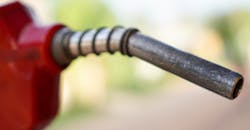Automakers Split Over U.S. Fuel-Efficiency Rules
The Alliance for Automotive Innovation, a trade association and lobbying group for U.S. automakers, has sided with the Trump Administration and against several of its member companies by intervening in a litigation to endorse final rules on fuel-efficiency standards.
In March, the administration set forth a final rule requiring 1.5% annual increases in automotive fuel-efficiency through 2026.
The Alliance said in its announcement that it believes the Environmental Protection Agency and National Highway Traffic Safety Administration “lawfully exercised their discretion in setting their standards in accordance with the applicable statutory requirements.”
While the Alliance includes numerous domestic automakers as members, including General Motors Co, Fiat Chrysler Automobiles, and Toyota Motor Corp., the group noted that its intervention with the Administration does not include the participation of American Honda Motor Co., BMW of North America, Ford Motor Co., Mercedes-Benz USA, Porsche Cars North America., and Volkswagen Group of America.
Last year Ford, Honda, BMW, and VW joined California in a voluntary framework agreement to raise gas-mileage standards and cut greenhouse gas emissions, which was characterized as a reaction to the Trump Administration’s determination to ease emissions standards for cars and light trucks established during the Obama administration.
In April, the Competitive Enterprise Institute (a libertarian lobbying group) sought a federal appeals court ruling to order the Administration to revise its plan, saying that EPA and NHTSA “failed to adequately consider the adverse traffic safety impacts of their chosen fuel economy standards.”
The Alliance said it supports federal policy that improves fuel economy and reduces vehicle greenhouse gas emissions "as part of a cleaner, safer, smarter future for personal mobility.
“The auto industry remains united in its desire for yearly improvements in fuel economy and greenhouse gas reductions,” stated John Bozzella, president and CEO of the Alliance for Automotive Innovation. “Automakers continue to bring highly fuel-efficient and electric-drive vehicles to U.S. consumers and advocate for policies that increase the development of the electric vehicle market.
"Despite calls by interest groups for flat standards, our members are committed to increasing standards that support investment in vehicles that improve fuel efficiency, and that balance affordability, safety, and the environment,” he continued.
